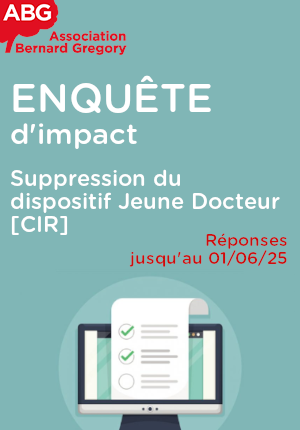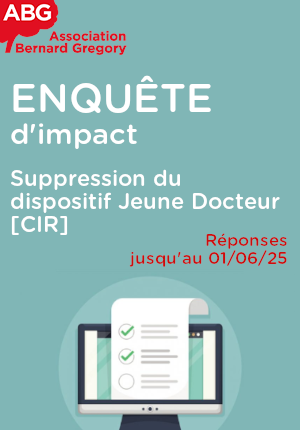Identifying Weak Interactions at the Solid-Liquid Interface
| ABG-132140 | Sujet de Thèse | |
| 22/05/2025 | Financement public/privé |
- Chimie
- Energie
Description du sujet
Electrocatalysis is expected to play a massive role in the energy landscape of the near future to cope with the intermittency of renewable energy sources. For example, the Hydrogen Evolution Reaction (HER) or CO2 Reduction Reaction (CO2RR) can be used to convert electricity into chemical products that can be stored and reused later. Electrocatalysts are required to perform these reactions efficiently while limiting the energy input. The widespread use of these reactions on large scales requires to formulate these catalytic systems as electrode materials. This step involves the association of a catalysts with a carbon support, which implies controlling the weak interactions between these two components. As of now, these interactions are poorly identified and controlled, which hampers the efficiency and selectivity of catalytic reactions. We therefore propose to develop a combined spectroscopic and theoretical method to describe these interactions in the context of electrocatalysis.
Funded by the MaTerRe consortium, we are looking for a doctoral candidate to develop and apply these methods. Her/his task will be to collect ex situ and in situ X-ray absorption spectroscopic (XAS) data on a series of transition metal macrocyclic complexes associated with various carbon supports. Part of these experiments will be performed at the ITODYS on a laboratory spectrometer, while others will be performed at Synchrotron sources in France or Europe. In parallel, theoretical calculations involving Molecular Dynamics (MD) will be performed to estimate the geometric arrangement of the macrocycle with the carbon support. Based on the structures obtained, XAS data will then be simulated with TD-DFT and compared with experimental data. The samples will first be studied in the solid state and in solution, then as heterogenous materials and finally under electrochemical potential.
Nature du financement
Précisions sur le financement
Présentation établissement et labo d'accueil
The laboratory develops research activities focused on surface chemistry, interfaces, nanomaterials and nanosystems, and molecular chemistry for nanoscience. Its broad thematic spectrum explores various aspects of the physical chemistry of molecules, nanosystems, and nanomaterials: nanoelectrochemistry, molecular plasmonics, electrochemical biosensors, functionalized and nanostructured surfaces, organic electronics, nanomaterials and hybrid materials, supramolecular assemblies, and molecular modeling are the most prominent themes. The laboratory has a range of equipment for the characterization of materials, surfaces, and nanosystems (SEM, AFM, XPS, X-ray diffractometry, Raman, IR, SECM, GC-MS, NMR, etc.). This equipment is complemented by theoretical activities, which benefit from access to both internal and external computing resources.
Site web :
Intitulé du doctorat
Pays d'obtention du doctorat
Etablissement délivrant le doctorat
Ecole doctorale
Profil du candidat
We are looking for a highly motivated candidate holding an MSc in experimental sciences (physics, chemistry, material sciences) and a strong interest for molecular chemistry. Experience in spectroscopy is expected, including data analysis. Prior experience with molecular modeling and theoretical chemistry is not essential but would be regarded as an asset. The ability and the will to learn new techniques is required, while basic knowledge in inorganic chemistry and physical chemistry is expected. An interest for both experimental work and theoretical work is required, knowledge in electrochemistry would be a plus although it is not required. The ability to work in a collaborative team but also independently is mandatory, as well as excellent communication skills (both written and oral) in English. The French language is not required.
Vous avez déjà un compte ?
Nouvel utilisateur ?
Vous souhaitez recevoir nos infolettres ?
Découvrez nos adhérents
 ADEME
ADEME  CASDEN
CASDEN  Institut Sup'biotech de Paris
Institut Sup'biotech de Paris  ANRT
ANRT  Laboratoire National de Métrologie et d'Essais - LNE
Laboratoire National de Métrologie et d'Essais - LNE  Généthon
Généthon  Nokia Bell Labs France
Nokia Bell Labs France  PhDOOC
PhDOOC  ONERA - The French Aerospace Lab
ONERA - The French Aerospace Lab  Tecknowmetrix
Tecknowmetrix  TotalEnergies
TotalEnergies  Groupe AFNOR - Association française de normalisation
Groupe AFNOR - Association française de normalisation  ASNR - Autorité de sûreté nucléaire et de radioprotection - Siège
ASNR - Autorité de sûreté nucléaire et de radioprotection - Siège  SUEZ
SUEZ  MabDesign
MabDesign  MabDesign
MabDesign  Ifremer
Ifremer  Aérocentre, Pôle d'excellence régional
Aérocentre, Pôle d'excellence régional  CESI
CESI







